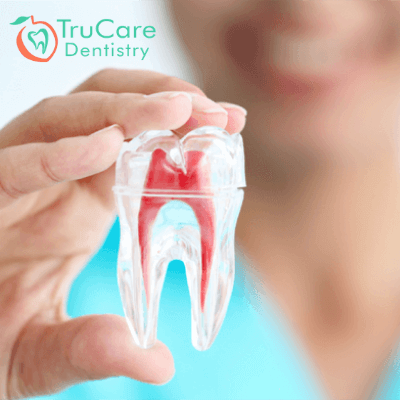
A root canal is a treatment of the pulp of the tooth which is infected, inflamed, or dead. The dental pulp is a soft thing in the middle of the tooth that is made up of the nerves, blood vessels, and some connective tissue. It is the most common dental procedure to treat the infection in the roots of teeth. In this article, we are focusing on the key information about root canal treatment. Let’s explore the details together.
When do you need RCT?
RCT – Root Canal Treatment is required to treat the infected pulp of the tooth and prevent further dental complications from the decayed tooth. Your dentist is an ideal person who should suggest whether you need root canal treatment. However, here are few indicative symptoms which may lead to undergo RCT:
- Severe pain while biting or chewing
- Lingering sensitivity to hot or cold
- Swollen or tender gums
- Deep cavity or darkening of the gums
- A chipped or cracked tooth
What is the Root Canal Procedure?
A dentist or endodontist can conduct a root canal treatment for you. The procedure will accompany the following steps:
Your dentist will initiate the treatment by taking an X-ray to see the root canals’ shape and conclude if there are any signs of infection in an adjacent bone. They will use local anesthesia to anesthetize the area near the tooth so you won’t feel any pain during the procedure.
Sometimes, you may not require anesthesia if the nerve is dead. But, most dentists still numb the area to make you feel more relaxed, and she can complete the procedure placidly.
Your dentist will also place a rubber dam (a sheet of rubber) near the tooth to keep the area dry and free from saliva during the root canal treatment.
The next step is digging access into the tooth so that the pulp, bacteria, or decayed nerve tissue can easily be removed from the tooth.
During the entire RCT procedure, the area is cleaned out with a set of root canal files. They are placed into the entrance hole and work down the tooth’s full length to scrape and scrub the root canals’ sides. As the work is completed, water or sodium hypochlorite will be sprayed in the area to rinse away the debris.
The tooth is sealed upon it is thoroughly cleaned. Some dentists would like to wait a week before sealing the tooth to check if there is a recurring infection on the site. Once your dentist notices no sign of infection (usually within a week), she will proceed further in the procedure.
If the root canal treatment is not performed on the same day, a temporary filling is fixed in the outer hole in the tooth to keep out saliva and food from the site.
Now, on the next appointment, to fill the interior of the tooth, a sealant will be used. A filling will be put in to close the passage hole formed at the start of treatment.
The terminal step may involve an additional restoration of the tooth. A tooth that requires a root canal treatment usually has a large filling or extensive decay, or other weakness. Sometimes, because of this, you may require a crown, crown, and post, or other alteration to protect it, prevent it from cracking, and restore it to full function.
Follow-up after your root canal treatment
Your tooth and gums might feel some swelling when the numbing medication wears off. Most of the time, dentists will provide the treatment for the after procedure symptoms with over-the-counter pain medications. This will help to reduce swelling and pain so that you can rest calmly. But, if the pain becomes severe or you notice any unusual signs on the site of the procedure, immediately contact your dentist and schedule an appointment.
After the complete root canal treatment is done, you should be able to resume your regular routine on the same day of the procedure.
Make sure to avoid chewing with the damaged tooth until it is permanently filled or a crown is fixed over the top. On the next follow-up visit, your dentist will take X-rays to make sure that any infection is gone. They will also replace the temporary filling with a permanent, and the permanent crown is also placed.
Root canal treatment is one of the most common dental procedures to treat the decayed tooth and limit further complications. If you or your loved one requires root canal treatment or any other dental treatment in Roswell GA, you are just a call away! Schedule your appointment at TruCare Dentistry and get the best dental treatment.
